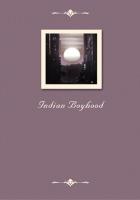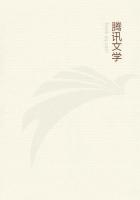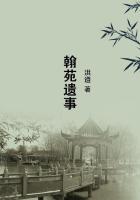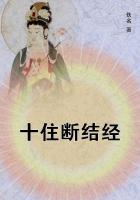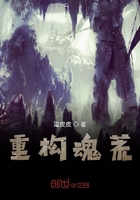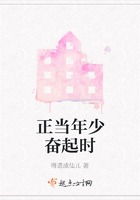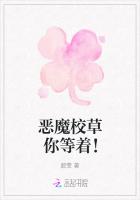In due course Godfrey received an epistle of frigid congratulation from his father upon his accession to wealth which, he remarked, would be of assistance to him in his future clerical career. The rest of the letter was full of complaints against the indignities that had been heaped upon him by Miss Ogilvy's executors and trustees, and also against Godfrey himself for not having furnished him with more information concerning the circumstances surrounding his inheritance.
Lastly, Mr. Knight enclosed a paper which he requested Godfrey to sign and return, authorizing him to deal with the income of the legacy.
This Godfrey did obediently, only a week or two later to receive a formal notification from the lawyers, sent to him direct this time as his address had been filled in on the Authority, informing him that he had no power to sign such documents, he being in fact under age, and suggesting that he should refrain from doing so in the future.
Enclosed were copies of their first letter to him, and of the other documents which Mr. Knight had not thought it worth while to forward because, as he said, they were heavy and foreign postage was so expensive.
Further the trustees announced that they proposed to allow him ā50 a year out of the income for his personal needs, which would be paid half-yearly, and enclosed a draft for ā25, which was more money than ever Godfrey had possessed before. This draft he was desired to acknowledge, and generally to keep himself in touch with the trustees, and to consult them before taking any step of importance, also as to his future career.
All this, with the sense of independence which it gave him, was agreeable enough to Godfrey, as it would have been to any youth. He acknowledged the draft under the guidance of the Pasteur, saying that he would write again when he had anything to communicate, but that as yet he had not made up his mind as to his future, and proposed to stay where he was, continuing his studies, if his father would allow him to do so. Next he took an opportunity to go to Lucerne with the Pasteur, who wished to inspect the Villa Ogilvy and consult the notary as to an inventory of its contents and arrangements for its upkeep.
Godfrey, who was received by the servants with many bows, and requests that they might be allowed to continue in their employment, wandered through the big rooms which looked so desolate now, and stared until he was tired at examples of beautiful French furniture, of which he understood nothing. Then, oppressed by memories of his kind friend into whose death chamber he had blundered, and, as it seemed to him, by a sense of her presence which he imagined was warning him of something, he left the house, telling the Pasteur, who was peering about him through his blue spectacles in an innocent and interested way, that he would meet him at the five o'clock diligence. Indeed, he had business of his own to do, which seemed to him more important than all this stock-taking and legal discussion. Having plenty of money in his pocket Godfrey wished to spend some of it in presents.
First, he bought a large meerschaum pipe with a flexible stem as a gift to the Pasteur, whom he had heard admire this very pipe in the shop window and express regrets that it was too expensive for his means. Having paid down thirty francs like a man for this treasure, he proceeded to a jeweller's near by. There he acquired a necklace of amethysts set with great taste in local silver work, for Madame to wear, and a charming silver watch of the best Swiss make for Juliette.
When he found that these objects involved an expenditure of fourteen sovereigns, he was a little staggered, but again smiled and paid up.
There was also a lovely little ring of gold with two turquoise hearts that he bought for ā2 to send to Isobel /when/ she wrote to him. But, as Isobel had posted her letter in Mr. Knight's drawer, that ring never reached her finger for many a day.
These gifts safely in his pocket, he began to stroll towards the railway station, whence the diligence started, slowly, as he had plenty of time. As he went he saw, in a shop window, a beautiful stick of olive wood, with an ebony crook. It was marked ten francs, and he coveted it greatly, but reflected with a sigh that having spent so much on others he could afford nothing for himself, for Godfrey was an unselfish soul. Instead he bought a collar of Swiss lace for Mrs.
Parsons. Immediately after he left the lace shop he became aware that he was being shadowed. He heard no footfall, and he saw no one, but he /knew/ that this was so; he could feel it down his back, and in a cold wind which blew across his hands, as it had done always at the Villa Ogilvy séances.
The road that he was following led across some public gardens beneath an avenue of trees, which, of course, at this time of the year, were leafless. This avenue was lighted here and there, and beneath one of the gas lamps Godfrey wheeled round to see Madame Riennes advancing on him out of the gloom. Her stout form padded forward noiselessly, except for the occasional crackle of a dead and frosted leaf beneath her foot. She wore a thick cloak of some sort with a black hood that framed her large, white face, ****** her look like a monk of the Inquisition as depicted in various old prints. Beneath the blackness of this hood and above the rigid line of the set mouth, stared two prominent and glowing eyes, in which the gaslight was reflected. They reminded Godfrey of those of a stalking cat in a dark room. Indeed, from the moment that he caught sight of them he felt like the mouse cowering in a corner, or like a bird in a tree fascinated by the snake that writhes towards it along the bough.
"Ah, /mon petit/," said Madame, in her thick, creamy voice, that seemed to emerge from her lower regions, "so I have found you. I was walking through the town and a notion came to me that you were here, a --what you call it?--instinct like that which make the dog find its master. Only I master and you dog, eh?"

